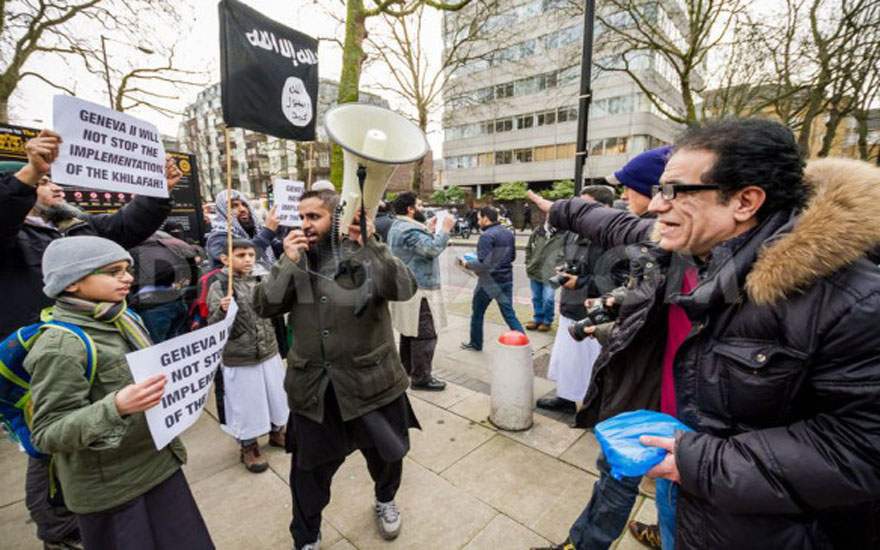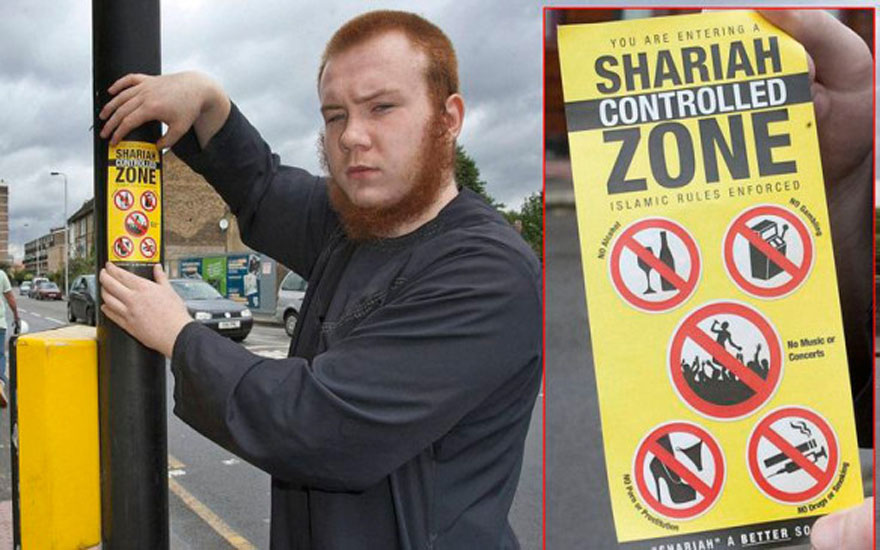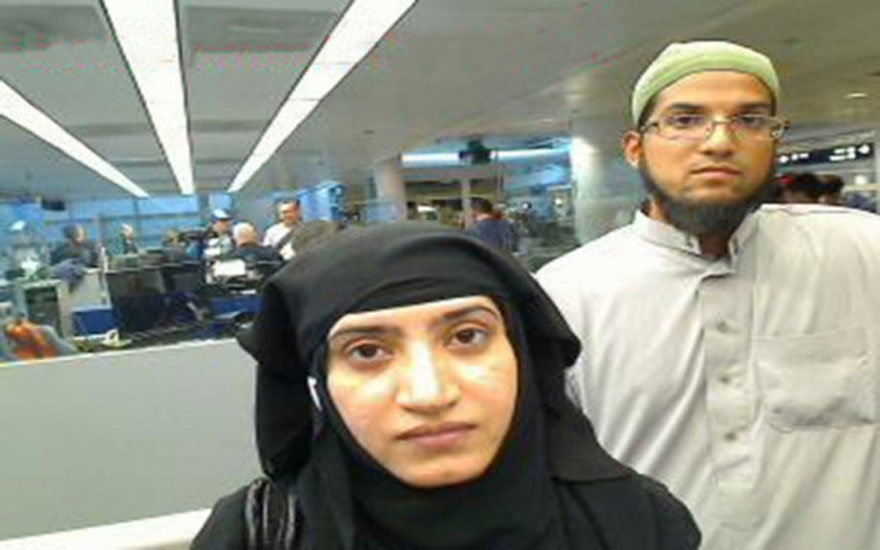The Roots of Radicalisation
By Mahir Ali | International News | Published 10 years ago
Growing up in Aarhus, Denmark’s second largest city, Ahmed was a pretty average fellow. He had lived there since he was six, he picked up Danish readily and did well at school. After he entered his teens, his father decided to take him on Haj.
“I didn’t know much about religion,” he told the BBC’s Tim Mansell in the middle of last year. “But my father said, ‘You are a Muslim, you have a Muslim name. You have to know your background, your history and your religion.’”
By the time he returned from Makkah, he says he was “a new person with a different identity. I saw the world differently. I saw that it was important for a person to have a connection with his God, I saw that there was an afterlife.”
He began dressing differently at school, and became combative when religion came up for discussion. His classmates, he recalls, “would say things like, ‘You stone your women, you lash people who speak freely,’ and I felt I had to defend my religion.”
Ahmed’s principal alerted the police, who took him in for questioning, searched his home and investigated his online interactions. He missed his school-finishing exams in the process. “That gave me a punch in the face and gave me the feeling this society is totally racist,” he says. “They call me a terrorist? I will give them a terrorist if that’s what they want.”
He spoke to friends at the mosque he attended. Some of them invited him home for discussions and a dose of jihadi videos. He was particularly attracted to the diatribes of Anwar al-Awlaki, the American preacher of Yemeni origin who was successfully targeted in a 2011 drone strike. One of his mosque acquaintances told him that if he wanted to know more about Islam and related issues, he should head to Pakistan. “He told me about a school there,” Ahmed says, “where they have good teachers and where they teach about Islam in the best way.” His father did not object to his plans to travel there, provided Ahmed finished school first.
Ahmed’s path to Islamist radicalisation is a broadly familiar example of the European experience. Denmark is second only to Belgium in terms of the numbers, proportionate to the population, who have cast their lot with the so-called Islamic State by travelling to Syria, usually via Turkey. Many of them are impressionable youngsters.
There are, of course, numerous variations on the theme. In most cases, parental or family approval is not a factor. Some degree of racism usually figures. More broadly, there is invariably a sense of alienation driven by a wide range of factors, notably some form of discrimination, real or perceived.
It is crucial to note, at the same time, that most young Muslims in the West, with generally similar experiences, manage to avoid jihadist brainwashing. Yet it is not surprising that the phenomenon is viewed with consternation and alarm. After all, a home-grown element contributed considerably to the most recent terrorist outrages in Paris and California.
Perhaps it is also not surprising that the western reaction to brutal massacres such as these runs the risk of heightening the tensions that contribute to a radicalisation of the Muslim mind. In France, for example, President Francois Hollande deemed it opportune to declare that his nation was at war with the Islamic State — as if the French contribution to current and previous conflicts in the Middle East was something different to being at war.

In the US, President Barack Obama sensibly avoided condemning the creed of the perpetrators in San Bernardino, but Republican presidential hopeful, Donald Trump, stole the headlines by proposing a ban on all Muslims entering his country. This, obviously, is precisely the kind of rhetoric the Islamic State thrives on in conveying the impression of Muslim victimhood.
That is by no means a novel trope: it has existed for centuries, and even in its latest incarnation it dates back at least to the 1990s, when conflicts in Bosnia, Iraq, Somalia and various other places contributed to the impression of Islam under siege. And the West’s modus operandi for dealing with actual or perceived threats does not help. Its usual strategy of often indiscriminate killing can all too readily be interpreted as a campaign of mass extermination.
None of the foregoing provides an excuse for succumbing to the jihadist mentality whereby a riposte accounting for similarly indiscriminate bloodshed, albeit on a considerably smaller scale, is somehow justified. But it does help in understanding the basis of the bloodlust.
Of course, it is not only educated Muslims based in the West who fall prey to radicalisation and the often concomitant urge to violence. The Islamic State obtains most of its recruits from within the Middle East and its outskirts. Some of them may be tempted by the prospect of relative wealth, but in all too many cases the driving force is ideological, reinforced by the success of Abu Bakr al-Baghdadi’s outfit in acquiring substantial real estate.
The abolition of the Turkish-dominated caliphate galled many Muslims a century ago — including those in India, where Mahatma Gandhi pounced on the cause as an agitational blessing (whereas Mohammed Ali Jinnah, somewhat ironically in retrospect, derided him for mixing religion with politics). The concept has featured as a twinkle in the eye of fundamentalists ever since, but the Islamic State’s capture of vast territories across Iraq and Syria appears to have prompted an unprecedented degree of belief in the prospect of an expansive Dawlah al-Islam.
It won’t happen, and it is anyhow a horrific prospect. Try imagining a Saudi Arabia of much vaster proportions, or a federation based on the precepts that guided the Taliban government in Afghanistan. Even a few years of education should theoretically suffice to deter most people from striving to facilitate such an entity. And perhaps it does. But there are always exceptions. And they are very much a part of the problem.
It is not just Wahabi or Salafist zeal that drives the proponents of a caliphate. Deobandis are part of it too. And however much Shia Iran might abhor the Islamic State, let’s not forget that the Iranian revolution of 1979 was a regional watershed that replaced a secular tyranny, however abhorrent, with a faith-based variety. In Afghanistan around the same time, jihadi zeal was propelled by largesse and weaponry from the US, Pakistan and Saudi Arabia. At the time, western and Islamist zealots were on the same page.
In the Islamic Republic of Pakistan, the military regime of General Zia-ul-Haq sought to cultivate an obscurantist interpretation of the faith. It encountered considerable resistance, but at the same time sowed the seeds of increased fundamentalism in terms of both jihadist zeal and conspicuous piety. Pakistan is by no means the only country afflicted by these phenomena, but it could lay claim to being something of a pioneer in the field, which is reflected in its reputation as “terrorism central.” And let’s not forget that the Taliban were spawned by an insidious ménage à trois between Pakistan, Saudi Arabia and the United States.

Their conquest of Kabul was viewed with pride in some quarters as Pakistan’s first military triumph on foreign soil. Others saw the export of the Taliban as an ideal means of uprooting them from Pakistani soil. But they inevitably left seeds behind. Just as, according to one estimate, some 60 per cent of Syrian rebel fighters share the core ideology of the Islamic State, the Taliban mentality in Pakistan extends far beyond the relatively small groups that take up arms in the name of Islam.
The educated young Muslims driven to acts of violence, presumably as a consequence of Islamist ideological indoctrination, are numerically small, but inevitably tend to stand out among their less privileged peers. For instance, Omar Saeed Sheikh — who was convicted for complicity in the brutal murder of Wall Street Journalreporter Daniel Pearl and appears to have been mixed up with a broad range of jihadist outfits as well as Inter-Services Intelligence (ISI) — was notably an alumnus of Lahore’s Aitchison College and the London School of Economics. And Tashfeen Malik, who participated in last month’s San Bernardino massacre, was raised in Saudi Arabia but undertook a pharmacy degree at Bahauddin Zakariya University in Multan, where she simultaneously attended an Al-Huda madrassah. It was initially suspected that she may have helped to radicalise her US-born, bred and educated husband, Syed Rizwan Farook, but it is perfectly possible that the two of them simply chanced upon kindred spirits.
There are a few intriguing parallels between Tashfeen Malik’s trajectory and the rather more mysterious activities of Aafia Siddiqui, a neuroscientist with a doctorate from Brandeis University, now serving an 86-year sentence in Texas. But then, as the case of Republican presidential hopeful Ben Carson — a paediatric neurosurgeon of some renown — illustrates, academic and professional excellence is no bar to crass stupidity at other levels, notably when it comes to a nexus between faith and reactionary politics.
Ultimately, the mantra that the upsurge in terrorism-related radicalisation has nothing to do with “true” Islam is as absurd as the contention that western military intervention does not help to spur precisely the sort of reaction it is ostensibly intended to curb. Yes, it is obviously a matter of interpretation — something that all faiths continue to grapple with. It is extremely unlikely, though, that any good can come from calls for an Islamic reformation by those outside the faith. The impetus for a standardised non-belligerent interpretation must come from within Islam. And it is arguably much more likely to take the shape of everyday discussions between small groups of individuals rather than any kind of authoritarian edicts.
To get back to the Aarhus youngster Ahmed, once he had announced his intention of travelling to Pakistan at the earliest opportunity, the police did not incarcerate or harass him, but put him in touch with a fellow Muslim,

Mahmoud. Ahmed was intially suspicious of the latter, but after a few months what Mahmoud was saying began to make sense. “You can still be a Muslim and have a prosperous future in Denmark,” he recalls being told. “You can be an asset to society, not a liability.”
Ultimately, Ahmed decided against going to Pakistan. After finishing school, he went to university, and at the time the BBC posted its report last July, he was married and about to graduate — and hoping to mentor “other people who have been in my situation.”
Of course the Aarhus Model won’t work in every case — and it’s not hard to imagine a milieu in which the likes of Mahmoud would be branded blasphemers or apostates. But it nonetheless offers a glimmer of hope in an otherwise grim scenario.
This article was originally published in Newsline’s Annual 2016 issue.
Mahir Ali is an Australia-based journalist. He writes regularly for several Pakistani publications, including Newsline.


